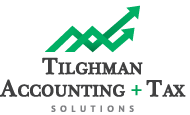Current Clients
Current clients receive a personalized Client Organizer through email. If you need to request another Client Organizer, Contact Us to request the Client Organizer.
New Clients
Please review the below important information, then complete a New Client Organizer.
Be Prepared
Start preparing early for your tax appointment by compiling a list of the documents you expect to receive based on last year’s statements and this year’s activities. It helps to gather documents into a central file as you receive them throughout the year. Contact your tax preparer early to reserve a convenient time for your appointment. Choose a time when you expect to have all the necessary documents. If you’re not sure of what documents you’ll need, call your tax professional before coming in for your appointment. Your tax return can be prepared more accurately and in a shorter period of time if all the information is available at the initial appointment. Being organized benefits both you and your tax preparer. Some tax professionals will pre schedule appointments based on when the prior year’s return was prepared. Don’t be afraid to switch the appointment time if circumstances change.
What do I need to bring when I meet with my tax preparer?
- Begin with W-2 forms from all the employers you have had throughout the year. Employers are required to issue W-2 forms by January 31. If you discover a form missing, contact the employer.
- You may receive income that is reported on 1099 forms. These statements report income from interest, dividends, pensions, self-employment, government payments or the sale of property. It’s helpful to bring the actual statements to your appointment. All forms will not look alike. Be sure to check the bottom of year-end statements that may be substitute 1099s.
- Bring a list of other income that you have received during the year, even if you don’t have specific statements.
- Income may be reported to you on Schedule K- 1. You would receive these statements if you were a member of a partnership, a stockholder in an S corporation, or a beneficiary of a trust or an estate. Quite often, these forms arrive in early March. Bring them with you to your tax appointment.
- Stock sales reporting requires information about the sale, as well as the original cost of the stock. This information is reported on year-end statements for the year of purchase. If the stock was received as a gift or inheritance, other means of determining the cost will be necessary.
- Reporting is required for most real estate sales, showing the cost, sales price and expenses of the sale. Closing statements from the sale and from the original purchase contain necessary information. Expenses of the sale and improvements made to the property increase the cost of the property. Real estate may be property held for investment, rental, pleasure or your personal residence. If the sale is on a land contract, you need to have the address and social security number of the buyer.
- Business owners and farmers need to keep and bring accurate records of all income received during the year. Expense records for inventory, supplies, business equipment and other business expenses are essential. Payroll records may be necessary, depending on the services provided by your tax preparer.
- Child care information should include the name, address and ID number of the provider, as well as the amount of the expenses.
- For active military personnel, moving expense records for unreimbursed job-related moves of more than 50 miles are useful. The cost of moving includes transportation of goods and family to the new location. Travel to your new home, including lodging, is also allowed.
- Medical expenses are deductible if they exceed 10% (7.5% if age 65 and older until December 31, 2016) of your adjusted gross income. Prescription drugs, doctor, dental, hospital bills, medical insurance premiums and the mileage to and from the doctor’s office fall under this category.
- Charitable contributions are a good source of deductions. Single contributions of $250 or more require a detailed statement from the charitable organization prior to the filing of your taxes. Receipts are required for all charitable contributions.
- As an employee, you may incur deductible expenses. Your tax preparer can help you with the expenses that are unique to your occupation. Don’t forget union dues.
- If you own a home, you may be able to itemize deductions. Each year, bring the property tax bill and the mortgage interest statement to your tax appointment. If someone else holds your loan or land-contract, be prepared to provide the name, address and social security number of that individual. The interest on home equity loans and a vacation home may also be deductible.
- Personal interest is not deductible, so you can leave the charge card or car loan interest at home unless it is related to business or investment.
The Affordable Care Act requires you to have minimum essential coverage. Please bring your health insurance card, Form 1095-A, Health Insurance Marketplace Statement, Form 1095-B, Health Coverage, Form 1095-C, Employer Provided Health Insurance Offer and Coverage Insurance, or your Certificate of Exemption.
Other Information
- Social security numbers are necessary for all dependents.
- For divorces occurring after 1984, the non-custodial parent will need a Form 8332 (or other similar statement) signed by the custodial parent in order to claim a child as a dependent.
- If this is your first visit to a new tax preparer, bring a copy of last year’s tax return. Your preparer can use last year’s information as a guideline for this year’s return. If you are returning to the same preparer, a copy should be on file.
It’s better to bring too much information to your tax appointment than too little. Remember, if in doubt, call your tax preparer ahead of time to discuss your questions.
